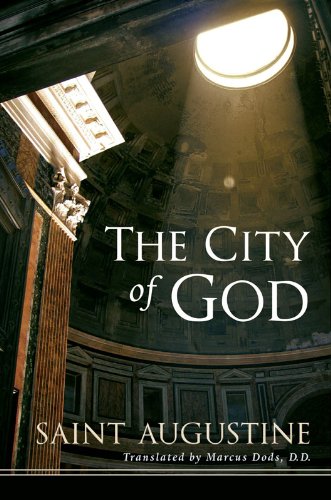Join our list
Subscribe to our mailing list and get interesting stuff and updates to your email inbox.

Publisher: Hendrickson Publishers
Price: $1.95
One of the great cornerstones in the history of Christian thought, The City of God is vital to an understanding of modern Western society and how it came into being. Begun in A.D. 413, the book’s initial purpose was to refute the charge that Christianity was to blame for the fall of Rome (which had occurred just three years earlier). Indeed, Augustine produced a wealth of evidence to prove that paganism bore within itself the seeds of its own destruction. However, over the next thirteen years that it took to complete the work, the brilliant ecclesiastic proceeded to his larger theme: a cosmic interpretation of history in terms of the struggle between good and evil. By means of his contrast of the earthly and heavenly cities—the one pagan, self-centered, and contemptuous of God and the other devout, God-centered, and in search of grace—Augustine explores and interprets human history in relation to eternity.

Publisher: Hendrickson Publishers
Price: $3.99
Originally published in 1728 at the beginning of the Enlightenment, when rational criticism of religious belief was at its peak, William Law’s work succeeded in inspiring the most cynical men of the age with its arguments in favor of a spiritual life. Proclaiming that God does not merely forgive our disobedience, but directly calls us to obedience and to a life completely centered in him, Law declares, “If you will here stop and ask yourself why you are not as pious as the primitive Christians were, your own heart will tell you that it is neither through ignorance nor inability, but because you never thoroughly intended it.” Law’s prose is packed with vivid imagery and illustrative anecdotes that both reveal what it means to lead a Christian life and unmask the perversion of Christian tenets by secular and spiritual establishments. This challenge of conventional piety and emphasis on Christian perfection directly influenced literary critic Samuel Johnson and historian Edward Gibbon, as well as Cardinal John Henry Newman. John Wesley called Law’s work one of three books that accounted for his first “explicit resolve to be all devoted to God.” Charles Wesley, George Whitefield, Henry Venn, William Wilberforce, and Thomas Scott each described reading the book as a major turning point in his life.


